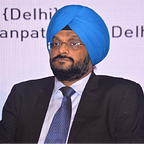Influence Warfare -Meddling with the Elections Process
Emergence of cyberspace has expanded the realm of the information environment, providing new avenues for states to pursue influence and heavily relies on platforms like social media. A single tweet or direct message can rapidly disseminate through society, reaching far and wide in a matter of seconds. Furthermore, cyberspace facilitates the creation of virtual images such as deepfakes and virtual reality, along with memes, virtual personas on platforms like Facebook, X (formerly Twitter), or Instagram, and various social media communities. Information spreads rapidly and uncontrollably in this environment, transcending national borders with ease.
Malicious actors can exploit these features of cognitive psychology and the internet since social media favours sensationalist content, irrespective of source or factuality. Actors on social media can deliberately manipulate and amplify negative messages by sharing misleading, deceptive or incorrect information that the audience perceives as genuine. Social media actors use algorithms to distribute fake and exaggerated news, and sharing is amplified by automated bots that consistently repeat the news.
Influence warfare during elections refers to the deliberate and strategic use of various means to sway public opinion, manipulate perceptions, and interfere with the electoral process. This type of warfare often involves a range of tactics aimed at influencing voters, shaping the narrative, and undermining the credibility of candidates or electoral systems. Some common methods used in influence warfare during elections are:
📌Disinformation Campaigns. These involve spreading false or misleading information through social media, news outlets, or other channels to create confusion, sow distrust, or discredit opponents.
📌Social Media Manipulation. Utilizing bots, fake accounts, or coordinated campaigns to amplify certain messages, hashtags, or narratives to sway public opinion or drown out opposing viewpoints.
📌Cyber Attacks. Targeting political parties, candidates, or electoral infrastructure through hacking, data breaches, or distributed denial-of-service (DDoS) attacks to disrupt operations, steal information, or undermine confidence in the electoral process.
📌 Propaganda. Utilizing traditional media, online platforms, or other channels to propagate biased or misleading information in favor of a particular candidate or ideology.
📌Foreign Interference. Involvement by foreign entities seeking to meddle in elections through funding, support for certain candidates, or covert operations aimed at destabilizing democratic processes.
📌Psychological Operations (PsyOps). Employing psychological techniques to manipulate perceptions, emotions, or behaviors of voters through targeted messaging, imagery, or other means.
📌 Astroturfing. Creating fake grassroots movements or organizations to give the appearance of widespread support for a particular candidate or cause.
📌Selective Leaking. Releasing strategically chosen information or documents to damage the reputation or credibility of political opponents.
📌Infiltration and Subversion. Attempting to infiltrate political organizations, campaigns, or activist groups to gather intelligence, disrupt operations, or spread disinformation from within.
📌Election Interference. Directly tampering with the electoral process through voter fraud, ballot tampering, or other illegal means to influence the outcome of an election.
Influence warfare during elections poses significant challenges to the integrity and fairness of democratic processes. Recognizing and countering these tactics often requires a combination of technological solutions, public awareness campaigns, regulatory measures, and international cooperation to safeguard the integrity of elections and protect democratic institutions.
